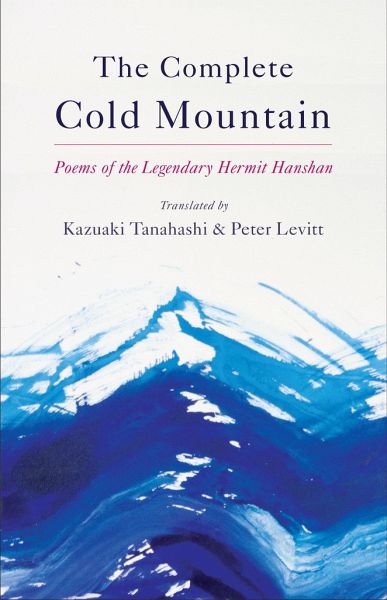
The Complete Cold Mountain
Poems of the Legendary Hermit Hanshan

PAYBACK Punkte
15 °P sammeln!
"The Hanshan ("Cold Mountain") poems are unquestionably the most enduring works to come out of the poetically rich Tang dynasty (seventh to early tenth century) of China. They entered modern Western consciousness though the influence of the Beat generation writers for whom they were a major influence, and they're rightfully known as some of the most accessible of classic Chinese poetry--the kind of poetry that speaks even to those who don't usually relate to poetry. They have been much translated. This new translation is unique both in its scope--it includes all the poems traditionally associa...
"The Hanshan ("Cold Mountain") poems are unquestionably the most enduring works to come out of the poetically rich Tang dynasty (seventh to early tenth century) of China. They entered modern Western consciousness though the influence of the Beat generation writers for whom they were a major influence, and they're rightfully known as some of the most accessible of classic Chinese poetry--the kind of poetry that speaks even to those who don't usually relate to poetry. They have been much translated. This new translation is unique both in its scope--it includes all the poems traditionally associated with Hanshan, more than 300--and in its tone: it is a collaboration between two renowned and very different poets and Zen students who honor the Buddhist elements of the verse while perceiving in the Cold Mountain poems a kind of humor and tenderness of heart that makes their renditions particularly delightful. The translation includes the full Chinese text of the poems, and a wealth of fascinating ancillary materials. This collection also stands out from the others in its organization: scholars often identify two different authors of the Cold Mountain poems, whereas Tanahashi and Levitt identify three poets from three different periods (Kaz explains why in a fascinating appendix), and they have arranged the poems accordingly"--



